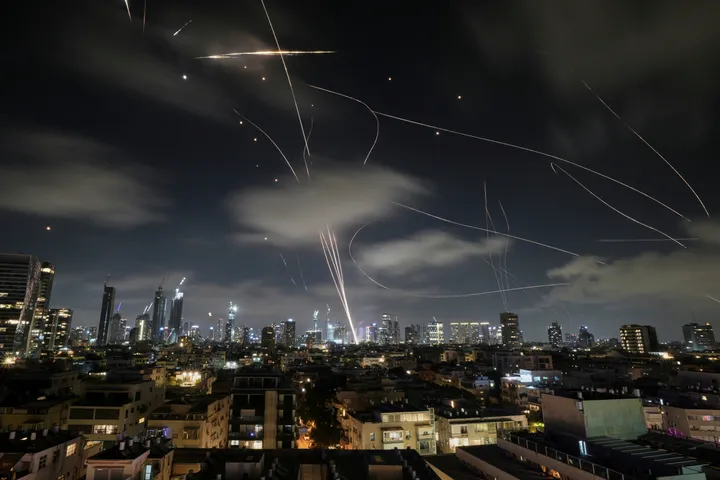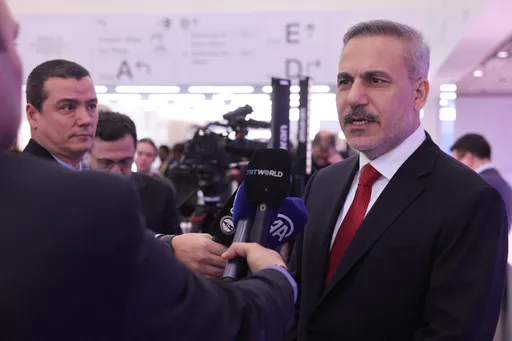Despite ongoing Israeli air strikes on Gaza, a newly negotiated ceasefire is beginning to take shape in the devastated Palestinian enclave, with aid convoys crossing the Rafah border under the terms of an agreement many had once deemed impossible.
At the heart of that improbable success lies Türkiye, whose role as both mediator and guarantor changed the course of negotiations that had seemed uncertain.
When US President Donald Trump unveiled his 20-point Peace Plan for Gaza on September 29, reactions were cautious.
The plan promised an end to hostilities, prisoner exchanges, and unhindered humanitarian aid, but left glaring gaps.
There were no clear enforcement mechanisms, no timeline for withdrawal, and no credible guarantors to ensure compliance.
For Hamas, still reeling from Israel’s two-year genocide, the proposal appeared to offer no protection or accountability.
Critics questioned whether the plan was more political theatre than policy. Many pointed to Trump’s unilateral announcement and lack of consultation with key mediators like Egypt and Qatar.
Hamas, for its part, said it would not consider disarmament or prisoner releases without “binding guarantees” — a red line Türkiye would later adopt and help operationalise.
How Türkiye changed the game
Türkiye was invited to join the talks in Sharm El-Sheikh, a reflection of Ankara’s credibility with Hamas and Trump’s personal rapport with Turkish President Erdogan.
Leading Türkiye’s delegation was National Intelligence Organisation (MIT) chief Ibrahim Kalin, representing Ankara’s political diplomacy, coordinating operational engagement.
He helped articulate Türkiye’s vision for a credible ceasefire while coordinating communication between Hamas, US, Egyptian, and Qatari officials.
But before all that came President Recep Tayyip Erdogan’s groundbreaking and highly successful US trip, during which he engaged with President Trump on issues of vital importance, including the question of Palestine.
RelatedTRT World - Here's the latest on the Gaza ceasefire agreement
On Thursday, Trump acknowledged Erdogan’s role in securing the deal.
Observers of the Sharm El-Sheikh negotiations noted that Türkiye’s participation helped provide additional structure and credibility to discussions that had previously stalled.
The talks included discussions about a four-party guarantor system — involving Türkiye, Egypt, Qatar, and the US — to ensure compliance, monitor ceasefire breaches, and manage prisoner exchanges.
While specific responsibilities were still being defined, the mechanisms underscore the collaborative effort to maintain the ceasefire.
This framework directly addressed Hamas’s key demand: the presence of trusted guarantors to prevent unilateral Israeli action.
It also gave Washington a politically viable mechanism to reassure the warring sides. Ankara’s involvement, though initially eyed warily in Tel Aviv, came to be viewed as essential to securing Hamas’ buy-in.
As a result, what had begun as a vague US proposal evolved into a structured, monitored, and phased plan. Within days of Türkiye joining the talks, the two sides agreed to the outline of a truce that all major mediators could support.
Why this ceasefire is different
This agreement stands apart from the two previous ceasefire attempts — one in late 2023 and another in early 2025 — both of which collapsed under Israel’s continued air strikes, and because enforcement mechanisms were weak or absent.
This time, the multiple guarantor mechanism — with defined roles, real-time monitoring, and a follow-up committee — created an enforcement structure unseen in prior accords.
Under the new terms, prisoner exchanges and humanitarian access are sequenced. Weapons are to be categorised into “defensive” and “offensive” stockpiles, with the former gradually transferred to a new Palestinian technocratic authority.
Hamas’s political bureau accepted the proposal.
The agreement was finalised yesterday in Sharm El-Sheikh. Within hours, aid trucks began entering Gaza through Rafah, marking an initial test of the truce.
Saudi Arabia and Jordan, though not core mediators, joined discussions to lend regional legitimacy and political support for restoring Gaza’s security and stability.
For Türkiye, this ceasefire is more than a diplomatic victory; it is a strategic affirmation of its long-standing foreign policy principle: that sustainable peace in the Middle East depends on the two-state solution, with legitimate Palestinian governance, humanitarian equity, and credible security guarantees.
President Erdogan has already pledged Türkiye’s participation in the international task force that will oversee implementation on the ground and locate missing Israeli captives.
“God willing,” he said, “Türkiye will join the mission force ensuring this agreement endures.”
This ceasefire has already redefined Türkiye’s diplomatic role in the region. Its ability to engage constructively with both Western and Middle Eastern partners has enhanced its reputation as a credible intermediary, pragmatic, trusted, and capable of translating complex political goals into workable arrangements.
Should the current truce hold, it will stand as proof that credible peace requires both political will and practical guarantors. Türkiye provided both.
For Gaza, this now means a fragile but real chance at recovery, provided that Israeli attacks also end and all parties respect the ceasefire.
For Türkiye, it marks the affirmation of a foreign policy that couples moral conviction with strategic capability, and places the two-state solution back at the centre of Middle East peace.
























